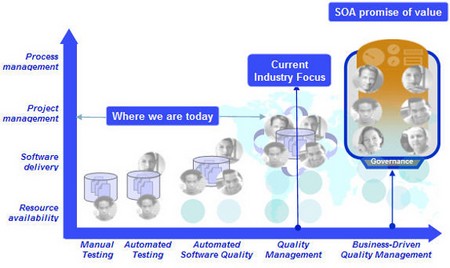Total Quality Management incorporates the features like: product that meets customer needs, control of processes to ensure their ability to meet design requirements and quality improvements for the continued enhancement of quality.
Total Quality Management evolution: Total quality means that everyone should be involved in quality at all levels and across all functions ensuring that quality is achieved according to the requirements in everything they do. The word “Total” injects a systematic meaning to quality. “Management” in TQM denotes the system supporting the achievement of quality and performance on a continuously improving path. The management responsibility refers to the need for everyone to be responsible for managing their own jobs, which incorporates managers with workers and all others concerned. Thus, TQM portrays a whole systems view for quality management.
The TQM approach is both a practical working process and a quality philosophy for the organizations committed to growth and survival. TQM approach starts with a vision that a concentrated management action can higher the quality of service and products of the organization at a very competitive cost satisfying customer’s need and increasing the market share. This increased market share will be stable because it has been earned with the help of solid customer’s good will and not by advertising.
Stages of implementation: The process of implementing TQM in an organized can be in the following four ways:
Identification and preparation: This stage is concerned with identifying and collecting information about the organization in the prime areas where improvement will have most impact on the organization’s performance and preparing the detailed basic work for the improvement of the organization’s activities. It is also important to find out the cost of the quality which incorporates the waste, error correction, failure appraisal and prevention in the organization.
Management understanding: This step is concerned with making sure that the management understands the objective and methodology of TQM and are ready to adopt them all the time. For many companies, Aquant TQM means a major change in the management practice and it is difficult to implement over a short period of time.
Scheme for improvement: This stage is concerned with identifying quality issues and effect a resolution of them by management led improvement activities. To develop quality improvement scheme, it is necessary to identify the quality problems in each division, in each department and throughout the whole organization.
Critical analysis: This stage starts with new targets and takes the complete improvement process to everybody indicating supplier and customer links in the quality chain. It also obtains information about the process and consolidates success. To focus quality aspects, the TQM process must be assessed by everybody in the organization.
